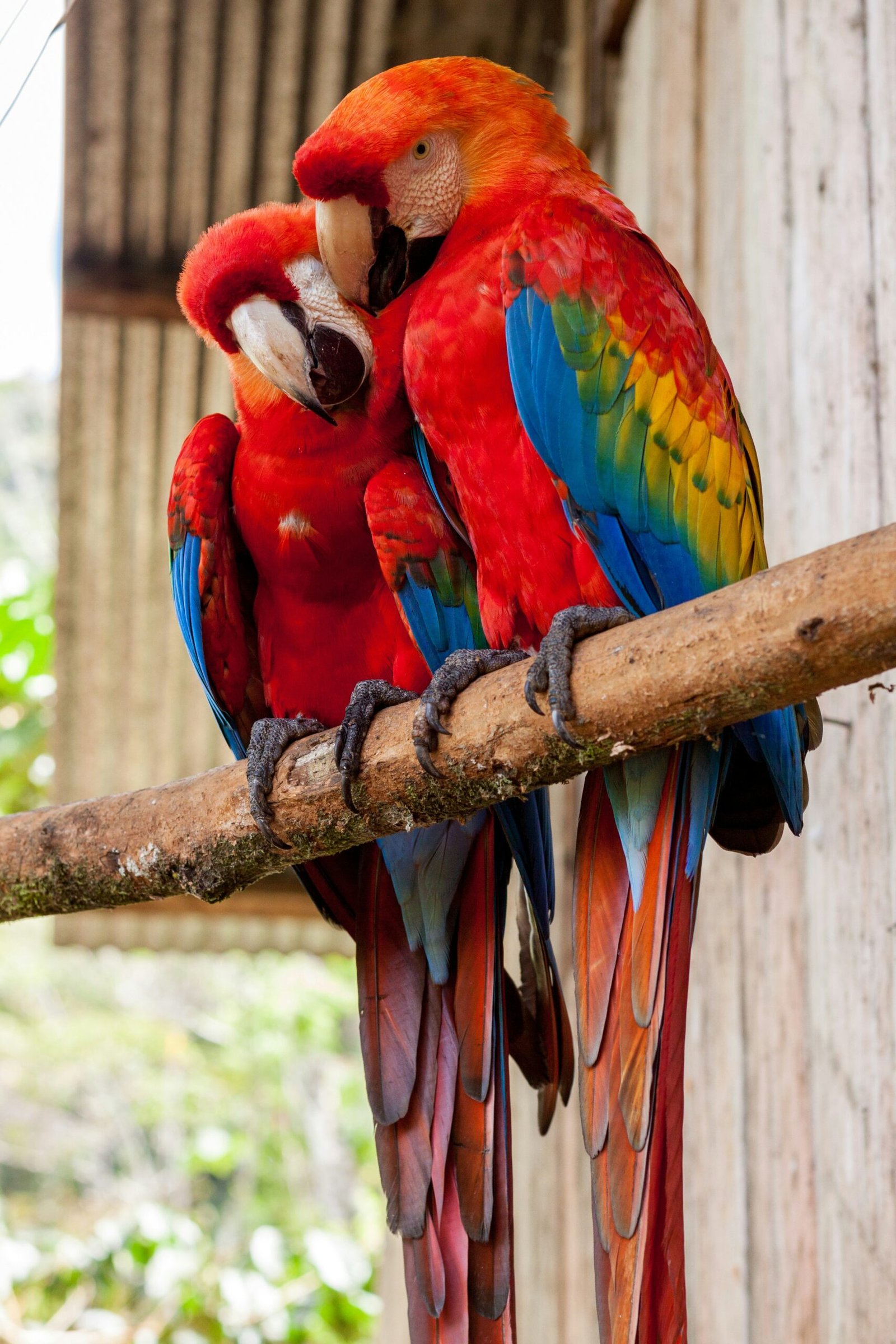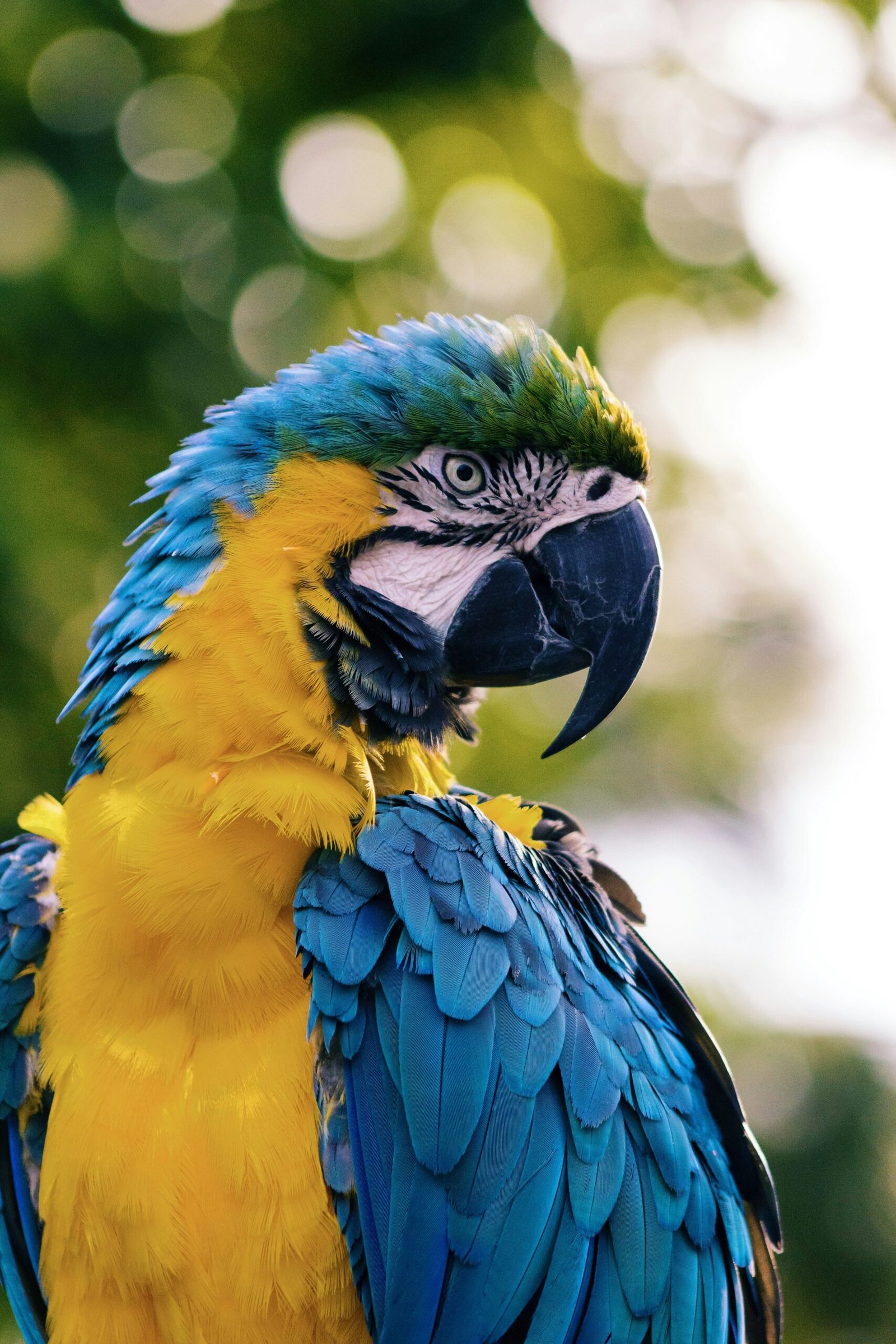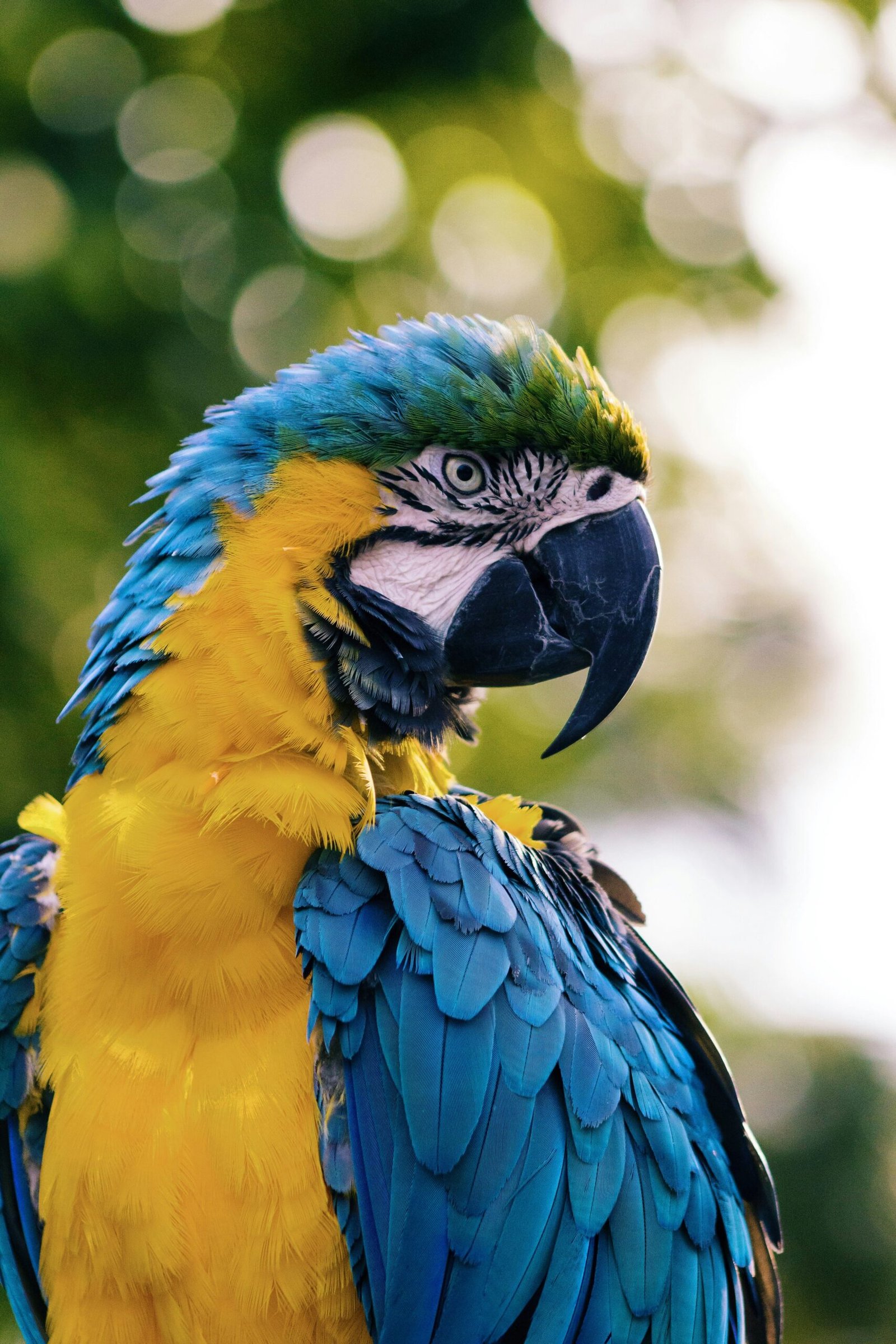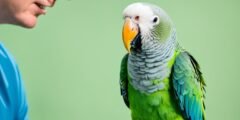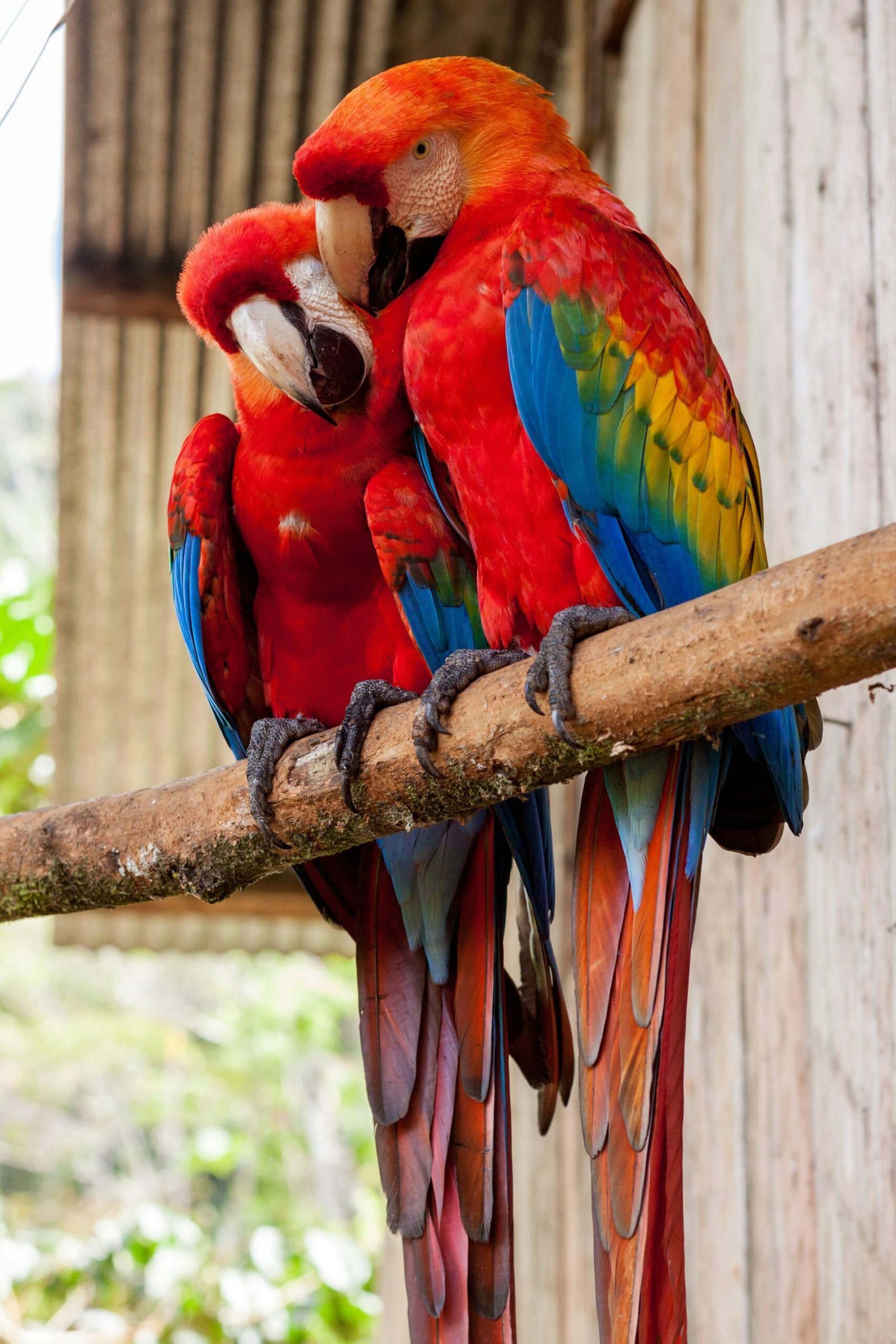Noise Level Considerations
Their vocal talents make Quaker parrots, known as monk parakeets, a critically sound choice for owners who wish to build entertainment and interaction into their companions’ lives. One of the biggest disadvantages to Quaker parrots is their noise, which comes at a price for those who are easily bothered by noise and families possessing little kids. They, too, vocalize in many different ways: some from chirps to whistles and squawks, some of which can be made with astonishing frequency.
Potential owners need to know what the vocal patterns of Quaker parrots sound like. These are social creatures by nature and their vocalisations act as a way of communication of not just with their flock but also of with their human companions. So, when they hear something in their environment, place, they may vocalize (in other words, they make vocal sounds such as a yell, bark or a squeak), and may respond to stimuli in their environment, such as the presence of a stranger, changes in their surroundings or when they play. This behavior can cause very unpredictable sounding levels, which could become an abnormally loud auditory experience.
If you intend to take up a Quaker parrot as a pet, one thing you must consider is his voice and manage his noise effectively. Stimulation with toys, social interaction and mental challenges will provide ample and can help prevent excessive vocalization. An ideal way to reduce the noise might also be to establish a routine in which it’s encouraged to allow quiet times through the day. Also, blocking off a quiet space for the parrot to live in while it is most sensitive can help with the parrot as well as everyone in the household.
Overall, Quakers can make very sweet companions, but as with any pet, potential owners need to consider the disadvantages of owning a Quaker bird, in particular the danger of the high noise levels quakers can make. Helpful steps that can be taken for you to start controlling your vocal tendencies will make for a less chaotic living environment.
Destructive Behavior and Chewing Habits
Quakers parrots boast of having very bright personalities and with this they are equipped with strong beaks especially for cracking seeds and nuts open. But if they’re not controlled, these beaks can be destructive toward their owners. Besides the fact that these parrots are playful one of the first benefits is that they are playful; these are the good and bad things. Quaker parrots are likely to chew on things within an inappropriate setting without an outlet to their chewing instinct, which can potentially ruin furniture, walls, and the electrical cords.
Their behavioral needs and natural instinct to chew are responsible and being able to chew is a way in which they can explore their surroundings. Quaker parrots are notorious for getting bored or lacking stimulation, so when they do, they can get into destructive behavior, which is bad for their owners and bad for them. The truth is that pet owners need to be aware that suitable toys and mental stimulation is very important. Safe, natural material toys in a variety of shapes and sizes mean the bird can stay occupied and still be curious.
That said, owners should also be aware of the common household items that can become hunting grounds for their bored and often overactive puppy pup. Not good parrot don’t play, not good parrot not entertain, curtains, furniture & kitchen utensils suffer. Garder these issues in mind, you can implement preventive strategies like alternating your child’s toys with rotation this can create time for your child to engage in playtime. Training sessions can also encourage interaction, and because it is positive redirecting their energy in a better direction. Finally, when you understand the harmful reasons that Quaker Parrots can be in terms of the habit for chewer, then you know how to manage better and carry out bonding experiences of the bird and its owner.
Territorial Nature of Quaker Parrots
Quakers parrots boast of having very bright personalities and with this they are equipped with strong beaks especially for cracking seeds and nuts open. But if they’re not controlled, these beaks can be destructive toward their owners. Besides the fact that these parrots are playful one of the first benefits is that they are playful; these are the good and bad things. Quaker parrots are likely to chew on things within an inappropriate setting without an outlet to their chewing instinct, which can potentially ruin furniture, walls, and the electrical cords.
Their behavioral needs and natural instinct to chew are responsible and being able to chew is a way in which they can explore their surroundings. Quaker parrots are notorious for getting bored or lacking stimulation, so when they do, they can get into destructive behavior, which is bad for their owners and bad for them. The truth is that pet owners need to be aware that suitable toys and mental stimulation is very important. Safe, natural material toys in a variety of shapes and sizes mean the bird can stay occupied and still be curious.
That said, owners should also be aware of the common household items that can become hunting grounds for their bored and often overactive puppy pup. Not good parrot don’t play, not good parrot not entertain, curtains, furniture & kitchen utensils suffer. Garder these issues in mind, you can implement preventive strategies like alternating your child’s toys with rotation this can create time for your child to engage in playtime. Training sessions can also encourage interaction, and because it is positive redirecting their energy in a better direction. Finally, when you understand the harmful reasons that Quaker Parrots can be in terms of the habit for chewer, then you know how to manage better and carry out bonding experiences of the bird and its owner.
Sensitivity to Environmental Changes
Quaker parrots, also known as monk parakeets, are renowned for their sociable nature and intelligence. However, one of the significant disadvantages of Quaker parrots is their heightened sensitivity to environmental changes. These birds can react adversely to alterations in their surroundings, such as loud noises, the presence of unfamiliar individuals, and even rearranged furniture within their habitat.
When exposed to sudden noise, such as construction, loud music, or even a vacuum cleaner, Quaker parrots may exhibit signs of stress. They might respond by becoming agitated, vocalizing excessively, or even resorting to feather plucking. This behavior can negatively affect their mental health, leading to increased anxiety and a decrease in overall well-being. It is essential, therefore, to create a calm and stable environment for these pets.
New people entering the household can also be a source of distress for Quaker parrots. Their innate tendency to bond closely with their primary caregivers makes them wary of strangers. When introduced to new individuals, these parrots may show signs of fear or aggression. This reaction can pose challenges for owners, especially in households that frequently receive visitors. To mitigate this issue, gradual exposure to new people is recommended, allowing the parrot to adjust at its own pace.
Rearranging furniture or changing the layout of their living space can also disturb the tranquility Quaker parrots crave. This can lead to confusion and stress, prompting them to feel unsafe in their environment. Therefore, it is advisable to maintain a consistent habitat for the parrots. If changes are necessary, they should be introduced slowly, allowing the birds to explore and acclimate without feeling threatened.
Managing the stress associated with change is crucial for maintaining the happiness and health of Quaker parrots. Recognizing these sensitivities allows owners to make necessary adjustments in their homes, providing support and reassurance to their feathered companions.
Dietary Needs and Health Issues
Feeding Quaker parrots demands a comprehensive understanding of their specific dietary requirements. These birds thrive on a balanced diet consisting of high-quality pellets, fresh fruits, vegetables, and occasional seeds. A diet solely based on seeds can lead to significant nutritional deficiencies, adversely affecting the overall health of these parrots. It is essential for owners to ensure that the food provided meets the necessary vitamin and mineral content to prevent conditions such as obesity, liver disease, and other health issues.
Quaker parrots are particularly susceptible to certain dietary-related health problems. For instance, a lack of essential fatty acids can result in feather plucking and skin disorders, while an inadequate intake of calcium may lead to bone density issues and other metabolic disorders. Moreover, some fruits and vegetables can be harmful when consumed in excess; for example, avocados are toxic to birds. Therefore, it is critical for Quaker parrot owners to educate themselves on safe and nutritious food options.
Improper diets can culminate in severe health complications. Birds deprived of a varied diet risk developing these problems, which may require veterinary intervention, proving to be both stressful and costly for the owner. Routine veterinary check-ups are vital to monitor the health of Quaker parrots, and prompt action can mitigate the risks of developing chronic conditions associated with poor nutrition. Furthermore, regular updates on diet recommendations from avian nutrition experts can assist in preventing dietary pitfalls.
It is also important to acknowledge the financial implications of providing a proper diet for Quaker parrots. Quality pellets and fresh produce can be more expensive than feeding a seed-based diet. However, the long-term health benefits provided by investing in suitable dietary choices often outweigh the initial costs, ultimately reflecting the commitment of the owner to their pet’s well-being.
Training Challenges with Quaker Parrots
Training Quaker parrots can often present unique challenges that differentiate them from other parrot species. One of the primary factors contributing to these challenges is their intelligent yet independent nature. Quaker parrots are known for their cleverness and ability to learn tricks and commands, but they can also exhibit stubborn tendencies that may hinder the training process. Owners might find that their Quaker parrot is sometimes selective about which commands they choose to follow, which can be disheartening for those expecting a prompt response.
Another challenge arises from the social nature of Quaker parrots; they thrive on interaction and can easily become distracted. When working with them, trainers may find that their bird loses focus on the task at hand due to outside stimuli or simply their desire for social engagement. This necessitates a controlled training environment where distractions are minimized, allowing the parrot to concentrate on the training regimen.
To address these training challenges, it is critical to employ effective and positive reinforcement techniques. Reward-based training, where the parrot receives a treat or praise after successfully completing a command, tends to yield better results. This method promotes motivation and helps the bird associate training with positive experiences, enhancing the likelihood of compliance. Additionally, short, frequent training sessions are recommended, as they prevent the bird from becoming bored or overwhelmed, maintaining their engagement throughout the learning process.
Patience and consistency are pivotal in overcoming training challenges with Quaker parrots. Owners must commit to regular training intervals while remaining understanding of the parrot’s mood fluctuations. Recognizing when to pause and resume training can lead to a more successful outcome. By employing suitable training strategies and demonstrating steadfast commitment, owners can navigate the disadvantages of Quaker parrots, fostering a well-trained and responsive companion.
Social Interaction and Emotional Well-Being
Quaker parrots, known for their lively personalities, are inherently social creatures that thrive on interaction with their owners and other birds. As such, neglecting their social needs can lead to significant emotional and psychological issues, which can adversely affect their overall well-being. Lack of socialization can result in a range of behavioral problems including excessive screaming, feather plucking, and aggression, which are often signs of stress and boredom. These behaviors not only impact the quaker parrot’s happiness but may also pose challenges for their owners.
A quaker parrot that experiences inadequate social interaction may become withdrawn and depressed. These birds are known for their playful and engaging tendencies; therefore, when they are not provided with sufficient companionship, they can exhibit signs of anxiety. This emotional distress may manifest through destructive behaviors, which can further exacerbate the issues associated with loneliness. Recognizing these warning signs is crucial for any quaker parrot owner, as early intervention can prevent more severe problems down the line.
To ensure that quaker parrots receive the interaction they crave, it is essential to dedicate time each day to engage with them. This can include talking, playing, or even training for basic tricks. Additionally, introducing interactive toys can provide mental stimulation, keeping them occupied when direct interaction is not possible. Creating a social environment is equally important; consider adopting a second parrot, as the companionship could significantly enhance the emotional well-being of your quaker parrot. Whether through direct bonding with humans or pairing with other birds, fulfilling their social needs plays a vital role in mitigating the disadvantages of quaker parrots and fostering a healthier, happier life for them.
Lifespan and Long-Term Commitment
Quaker parrots, known for their vibrant personalities and exceptional intelligence, typically have a lifespan ranging from 20 to 30 years. This remarkable longevity signifies that potential owners must be fully prepared for a long-term commitment that encompasses both joys and significant responsibilities. Understanding the disadvantages of quaker parrots requires a conscientious evaluation of the financial and emotional aspects involved in their care over such an extended period.
The financial implications of owning a quaker parrot are considerable. Initial costs can include purchasing the bird itself, accessories such as cages, toys, and food. However, it’s important to recognize that these expenses do not stop there. Over the years, owners must budget for ongoing veterinary care, which is vital for the well-being of the bird. Regular check-ups, vaccinations, and potential treatments for health issues are essential to ensure a long and healthy life for the parrot. Additionally, as the bird ages, certain health conditions may arise, leading to unexpected medical expenses that can place a strain on an owner’s finances.
Moreover, the long lifespan of quaker parrots also brings about emotional considerations. These birds are known for forming strong bonds with their owners, creating an enriching companionship that can be deeply fulfilling. However, this bond also means that owners may experience emotional challenges, such as anxiety concerning their pet’s health or eventual passing. Lifestyle adjustments are often necessary to accommodate the needs of a parrot, impacting the owner’s travel plans and social activities. Such adaptations can lead to feelings of isolation, particularly if friends or family do not share an interest in pets.
In conclusion, the long lifespan of quaker parrots presents both advantages and disadvantages. It is essential for prospective owners to weigh the financial commitment and emotional responsibilities that accompany caring for a quaker parrot, ensuring they are prepared for the journey ahead.
Legal Considerations of Ownership
Before acquiring a quaker parrot, potential owners must carefully examine the legal framework surrounding the ownership of this species. In certain regions, quaker parrots are classified as invasive species due to their ability to thrive in various environments, often outcompeting native birds for resources. As a result, several states and municipalities have enacted laws prohibiting the ownership or breeding of these birds. This classification can lead to significant legal consequences for individuals who fail to comply with local regulations.
The legal implications for owning a quaker parrot can range from fines to confiscation of the bird. In jurisdictions where they are deemed illegal, the authorities may impose severe penalties on those who possess these parrots without proper permits. This creates a substantial risk for prospective owners who are unaware of their local laws. Thus, thorough research into the specific regulations governing quaker parrot ownership in one’s area is essential. Neglecting this step may not only lead to legal challenges but can also result in a negative impact on local wildlife, prompting further legal action against the owner.
Moreover, some jurisdictions may grant permits for ownership under specific circumstances, such as adopting from a rescue organization or adhering to particular care standards. Consequently, it is imperative for potential owners to engage with local wildlife authorities or animal control to determine their obligations regarding the ownership of a quaker parrot. Failure to abide by these rules not only jeopardizes the individual’s right to keep such a bird but also contributes to broader ecological concerns. Therefore, understanding the legal considerations surrounding the disadvantages of quaker parrots is crucial for responsible pet ownership and conservation efforts.
Bonding Nuances with Quaker Parrots
Quaker parrots are renowned for their ability to form deep, affectionate bonds with their owners. This capacity for bonding can create rewarding and fulfilling relationships; however, it also carries certain disadvantages that potential owners should be aware of. One notable aspect is their tendency to exhibit selective bonding behavior, where they may develop an attachment primarily to a single person within the household. This selective bonding can inadvertently lead to feelings of jealousy or aggression, particularly towards other family members or pets that may attempt to interact with their preferred individual.
When a Quaker parrot feels threatened by the presence of other individuals, it may resort to aggressive behaviors, such as biting or squawking, as a means of defending its bond. This can create challenges for families, especially in multi-pet households, where the dynamics of interspecies interactions can be complex. For families with multiple members or pets, it is crucial to establish strategies that promote social cooperation and mitigate any potential negative behaviors associated with bonded Quaker parrots.
One effective approach is to ensure that all family members engage with the Quaker parrot regularly, thereby fostering a sense of inclusion within the household. This can be achieved through shared activities such as training sessions or playtime, allowing the bird to become accustomed to diverse interactions. Additionally, providing designated spaces for the bird and pets can help establish a sense of security, reducing territorial aggression. Utilizing positive reinforcement techniques can further enhance their social skills and decrease the likelihood of jealousy or hostility.
Understanding the disadvantages of Quaker parrots, including their selective bonding tendencies, is essential for any prospective owner. By implementing strategies that encourage positive relationships within a multi-pet setting, families can cultivate a harmonious environment where both the Quaker parrot and other household members coexist peacefully.
